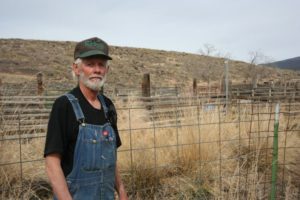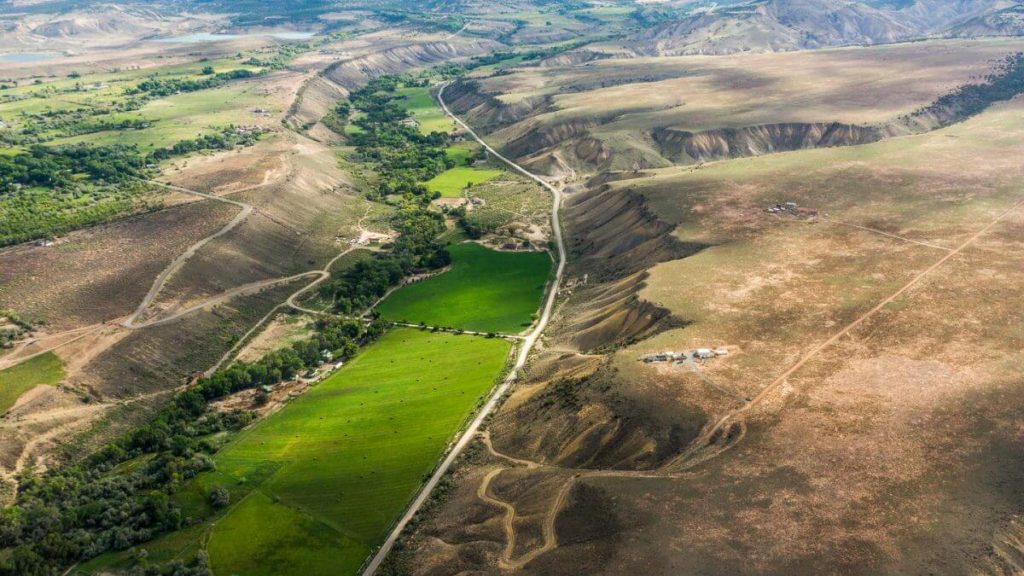Above photo: irrigated fields bring life and agricultural bounty to Colorado’s western slope. The water resources that keep the area alive seem to be ignored by the BLM permitting process.
Even as Colorado faces “extreme drought”, the BLM doesn’t consider water impacts as “significant”.
Written by Emily Hornback, Staff Director, Western Colorado Alliance for Community Action.
In early April, the Bureau of Land Management issued a “Finding of No Significant Impact” for a proposal to drill 108 oil wells on 12 pads in the Grand Junction watershed. Western Colorado Alliance members – who have challenged the short-comings of the plan for 10 years – are weighing the options moving forward.
The project, known as the Whitewater Master Development Plan, would span 26,000 acres around the base of the Grand Mesa, from Palisade to Whitewater.
“A large scale project that could impact a critical water supply for area ranchers and an entire city deserves the most rigorous analysis possible – in other words, a full Environmental Impact Statement.”
One of those proposed well pads is on the ranch of Alliance member Don Lumbardy. The pad is close to Lumbardy’s irrigation ditch – the only source of fresh water on his ranch, and on which he and his livestock rely for clean drinking water. He has been asking the BLM for years to assure him the water to his ranch will not be impacted by the project. Instead, officials have acknowledged that drilling might affect his water supply.

“This tells me that they don’t consider water important enough to be worried about,” Lumbardy said.
Our analysis of the BLM’s April decision shows that not much has changed since we first challenged the proposal in 2013. The operator has moved most of their activity out of the official boundaries of the Grand Junction watershed, and the trucking traffic has been re-routed off the popular “Fruit and Wine Byway.” However, in addition to failing to address Lumbardy’s concerns, we still see faulty analysis on air quality impacts and inflated estimated economic benefits of the project without fully accounting for the costs.
A large scale project that could impact a critical water supply for area ranchers and an entire city deserves the most rigorous analysis possible – in other words, a full Environmental Impact Statement.
As western Colorado faces extreme drought conditions this summer, and as ranchers across the region are facing irrigation and hay shortages, we are reminded how critical water is to life and livelihoods on the Western Slope. Our Alliance will do what it takes to protect this critical resource in the Grand Valley.
Read more stories about oil and gas here.
Read more:
Colorado Oil and Gas Activists Hopeful, Despite Ballot Defeat
Fracking Cover-Up Continues Groundwater Contamination Disaster in Pavillion, Wyoming
WORC Files Injunction to Stop Secret Royalty Policy Committee Meetings


